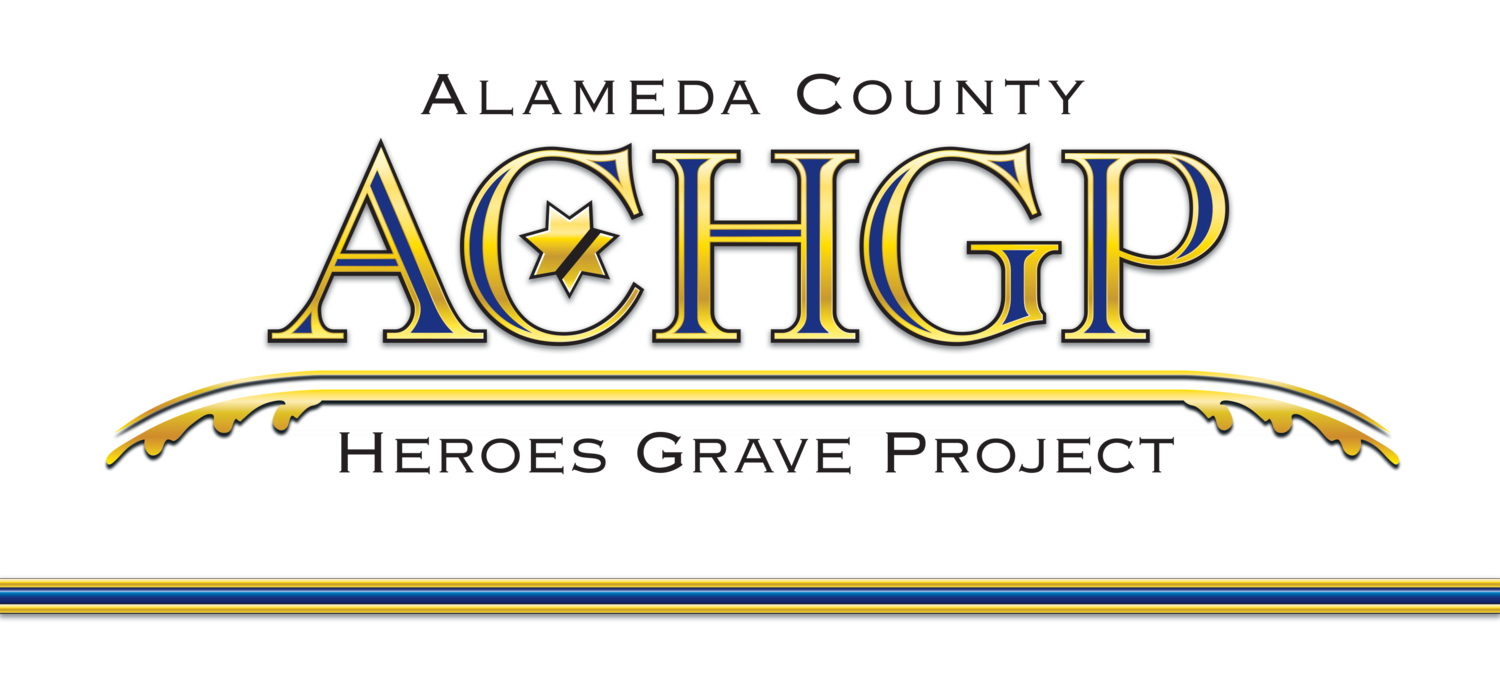The 1898 "Melrose Incident" - Spectacular explosion claims Heroes #4, 5, 6, 7, 8.
A dispute over a 25 cents seven spot Chinese lottery ticket (known as Keno today) and $48 in winnings. Quong Chung, a resident of the village of Melrose got into a dispute at his residence with Quong Tan, a resident of Alameda, from whom Chung purchased the ticket. Along with 23 other immigrant Chinese, Chung resided in company housing on the property of his employer, the Western Fuse and Explosives Company. The premises were located at the corner of Clark and A streets (now Coliseum Way and 45th avenue, respectively), within the Township of Brooklyn (later incorporated into Oakland). The dispute elevated to Chung taking a hatchet to Tan, then finishing him off with a gunshot. Chung fled to his workplace and barricaded himself in the magazine, a building that reportedly contained up to five tons of gunpowder. Chung threatened to blow up the magazine if anyone came near.
Alameda County deputy sheriffs as well as area constables and town marshals converged on the scene. Alameda County in 1898 had approximately 10 deputies so it was commonplace for area peace officers to assist when needed. National Guard volunteers of the 8th regiment from nearby Camp Barrett (at Fruitvale) also responded to assist. The posse dispatched by Sheriff Calvin B. White was led by his son deputy Charles White and included his brothers, deputies Al and Ed White, deputies George Woodsum, John J. Lerri, Daniel C. Cameron, Fred Sherrott, the constable for Oakland Township Gustave "Gus" Koch and others.
The law-enforcers kept watch on the premises and negotiated throughout the day and night with Chung, who steadfastly refused to come out of the building while repeating his promise to blow up the magazine if anyone neared him. A Chinese coworker (Chung's supervisor) acted as an interpreter and intermediary during negotiations, as Chung did not want law enforcement officers to approach him. At one point during the night, Chung requested water. It was suggested to deputy Charles White that the water should be "doped" (with morphine). White dismissed the suggestion. That decision may well have determined the eventual outcome. The San Francisco Call newspaper put it succinctly: "His misplaced idea of humanity cost him and his grave companions their lives."
Just after 5:00 a.m. Chung opened the door to the magazine and stepped out, indicating he wished to surrender. Deputy Charles White told Chung he would not be harmed, and the deputy along with constable Koch and deputy Lerri began to approach Chung to effect the arrest. Chung suddenly turned and ran back into the magazine, slamming the door behind him. Seconds later at 5:18 a.m. the most sensational explosion in the history of Alameda County occurred. The Western Fuse and Explosives Company was completely destroyed along with more than two dozen nearby homes and businesses. Windows were broken out miles away and the blast was felt as far south as San Jose, where residents believed an earthquake had occurred. The blast took the lives of Alameda County deputies Charles White and John J. Lerri, assigned to Oakland; deputy Daniel C. Cameron, assigned to Alvarado; deputy George C. Woodsum, assigned to Berkeley and Gustave "Gus" Koch, constable for Oakland Township. Read the July 20th, 1898 front page of the San Francisco Call here.
On the evening of July 20th 1898 and the following morning, a Coroner's inquest was conducted. After hearing testimony from twelve witnesses, the eight members of the Coroner's jury returned the following verdict for each victim: "We, the jury, do find that (the deceased) came to his death at the Western Fuse Company's works, Melrose, Alameda county at about 5:20 o'clock A. M., July 19th, 1898 and that death was caused by injuries due to the explosion of powder in the magazine of said works, with murderous intent by one Chinese named Quong Chung, an employee of said powder company, who had free access to said powder magazine". See the Coroner report for deputy Cameron here.
Research by ACHGP member Jim Knudsen revealed that the final resting places of two of the victims, deputy sheriff Daniel Carlyle Cameron and Oakland Township constable Gustave "Gus" Koch, are unmarked (photos below). Read Knudsen's account of their lives here.
In addition to grave markers for our heroes who lack one, we are planning to create a public civic monument/memorial for the five peace officers killed in the 1898 Melrose Incident.
Unmarked gravesite of Gustave Koch (in front of ACHGP member Michael Wozniak - CLICK for full image). George Woodsum's gravesite is to the left
Daniel Cameron's unmarked gravesite. Blue notebook is on the location



